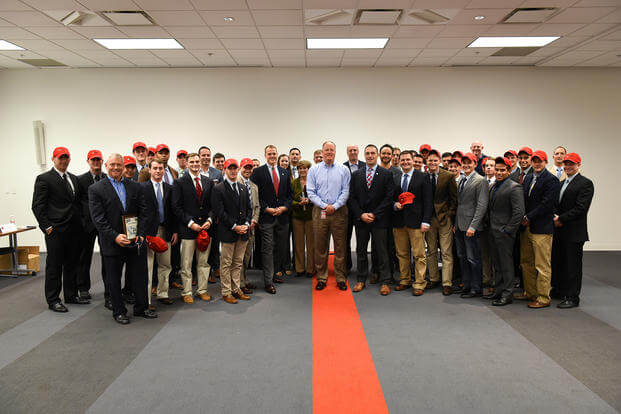Temporary work -- that's for those lost souls who scratch out a meager living with an anonymous series of assignments making copies, right? Not exactly, says the growing cadre of corporate cowboys who alternate between $2,000-a-day interim executive assignments and multimonth stints on the golf course.
Indeed, for many hotshot managers, temporary assignments have enabled their ideal ways of life. Here's the executive summary on limited-time gigs for high fliers.
Who Wants to Hire a Temporary Exec?
There are two common situations in which a company president or board of directors seeks interim executive help.
In the first scenario, "there's an unexpected opening; for example, the board fires a CEO," said David Kinley, a managing director at executive recruiter Christian & Timbers in Toronto. "Typically, one of the board members is conned into doing it, but often they don't want to do it," in which case the company abbreviates the crisis by doing a relatively quick search for an interim chief, he explains.
In the second scenario, "a startup is looking for someone to come in and help the company strategize," said David Woodall, CIO of CXO Media, the Framingham, Massachusetts, publisher of "CIO and Darwin."
Companies "can get the talent when they need it," said Dennis Powers, a manager director at Executive Interim Management (EIM) in New York City. "When they don't need it, they can turn it off."
Recruiting costs are also much lower. EIM typically charges a $10,000 to $20,000 upfront fee to identify at least one qualified interim manager, then a day rate until the project is completed. By contrast, agencies that place executives in permanent positions typically charge six figures.
Why Do Executives Want to Temp?
Sometimes the key motivation for executives seeking interim assignments is the boredom that follows fast on the heels of a meteoric career and early retirement. Powers says his clients are "typically 45- to 60-year-old empty nesters with significant operating experience that can parachute into any culture. They tell us, 'I don't need the money, but I'm going nuts on the golf course. What have you got for me?'" Of course, sometimes top managers take a temporary spot out of necessity when they're between permanent jobs.
CFO Paul Cattermole likes the temping life, because it lets him concentrate on practicing his discipline rather than playing games. "Since I'm there to accomplish specific goals, politics is not part of this," said Cattermole, who's now working for a Massachusetts medical laser company whose president wants to retire and cash out. "I'm not trying to befriend the president so that he gives me a bonus in two years."
On the other hand, if an executive parachutes into a company, the interpersonal challenges can be daunting. "You're going to get some resentment," said Woodall, especially from up-and-coming managers who seek the job the temp has filled.
Woodall says CIOs who relish interim assignments usually share certain personal traits. "Some people really love problem solving, troubleshooting, acting as the knight on a white horse," he said. "They love to come into a brand-new or hurting organization and craft a plan."
What About the Money?
The cash compensation is attractive to many executives; EIM, for example, pays its temp CEOs $1,000 to $2,000 per day for an assignment that might run six to 18 months. But the upside potential is limited, because executives for hire typically don't accumulate the equity that can make gazillionaires of their permanent counterparts.
So how do you land one of these sweet gigs? Many aspiring temporary execs work with a recruiting firm. But that's not the only way, says Cattermole, who has lent his financial prowess to 20 or more companies over the last 10 years.
"To make this into a career, you can't rely on other people; you have to develop a network," he says. If you keep in touch and are visible, "you don't automatically cruise from one assignment to the next, but your downtime is minimized."
On the flip side, where your golf game is concerned, regular stretches of unemployment might not be a bad thing.
Want to Know More About the Military?
Be sure to get the latest news about the U.S. military, as well as critical info about how to join and all the benefits of service. Subscribe to Military.com and receive customized updates delivered straight to your inbox.











